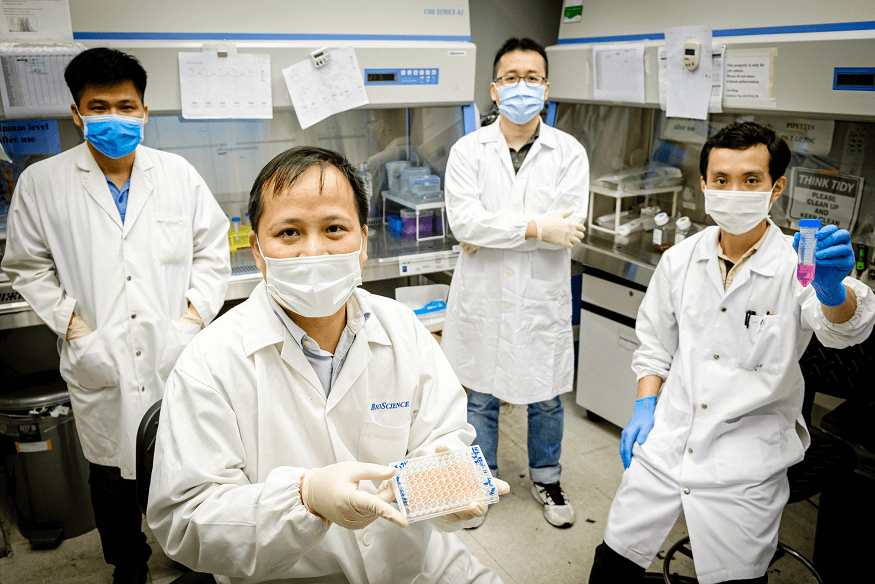NTU reveals new study on autoimmune disorders and severe COVID-19
March 12, 2021 | Friday | News
NTU Singapore scientists have designed a compound called ASO-1 to control a hyperactive immune response

Photo Credit: Nanyang Technological University, Singapore (NTU Singapore)
An overactive immune system leads to many autoimmune disorders – when the immune system mistakenly attacks healthy tissues – such as rheumatoid arthritis and type 1 diabetes. More recently, it has also been linked to severe COVID-19 infections, in which immune-system signalling proteins ramp up to dangerous levels, leading to damage to the body’s own cells.
Scientists from Nanyang Technological University, Singapore (NTU Singapore) have created a compound that could help to reduce immune response overactivation without impairing the body’s entire immune response.
This compound designed by the NTU research team, called ASO-1, targets tyrosine kinase 2 (TYK2), a member of the Janus kinase (JAK) family of enzymes that play a key role in regulating the body’s immune response. A recent study led by the University of Edinburgh and published in the leading scientific journal Nature found that high levels of TYK2 have been associated with severe COVID-19.
Through lab experiments using human cells grown in a dish, the NTU scientists found that ASO-1 potently reduced TYK2 levels over a sustained period and inhibited immune signalling pathways that have been associated with autoimmune disorders. The potential of the ASO-1 compound is forming the basis for treatment of autoimmune conditions.
“Human genetic studies have suggested that deactivating TYK2 could provide protection against a broad range of autoimmune conditions such as rheumatoid arthritis, psoriasis, lupus, and type 1 diabetes” said Professor Phan, Interim director, NTU Institute of Structural Biology.
The findings were published in February in the scientific journal ImmunoHorizons. The research team has filed a patent for the ASO-1 compound and lookingforward to further academic and industrial collaborations.
Targeting genetic material that leads to TYK2 production
A number of drugs that reduce inflammation resulting from an overactive immune response target the Janus kinase (JAK) family of four proteins: JAK1, JAK2, JAK3 and TYK2. Recently, TYK2 has emerged as researchers’ preferred target. As the structures of the four members are highly similar, it is important to selectively target TYK2 to limit unwanted side effects.
The ASO-1 compound designed by the NTU research team is an antisense oligonucleotide (ASO). ASOs are a type of RNA therapeutics – they target the messenger RNA (mRNA), which carries genetic instructions that cells ‘read’ to make proteins. ASO-1 is designed to bind to TYK2 mRNA, thus preventing cells from producing TYK2 protein.
Dr Lim noted that this high potency of ASO-1 rivals that of recent ASO drug candidates that have advanced to clinical trials or have been approved for clinical use. The team has established an integrated platform spanning the design, synthesis, and cellular testing of RNA therapeutics. TYK2 stands among a range of therapeutic targets for immunology and cancer therapy, which is the primary focus of the team.





